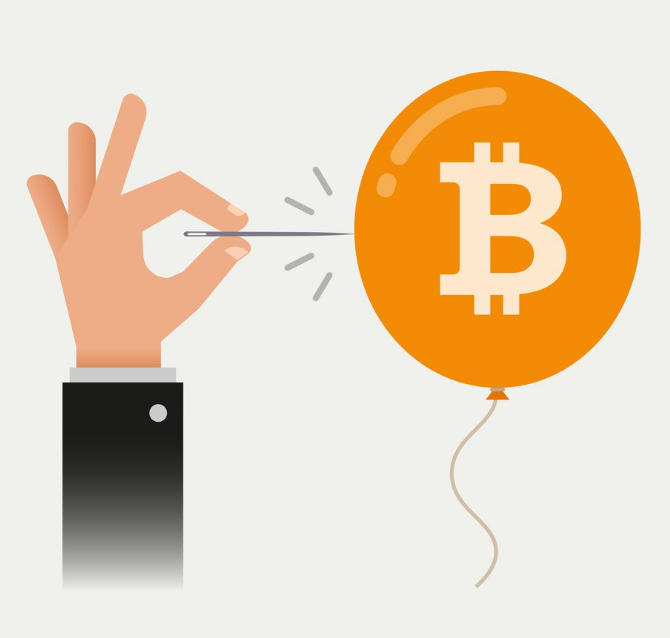Bitcoin and cryptocurrency craze is not just bubble WSJ says

I can remember a few years ago when I was thinking of investing some money in a relatively new form of currency called bitcoin. At the time, the price was somewhere around $500 for a single bitcoin, which seemed kind of nuts to me. What would keep some smart computer guy or gal from figuring out how to hack this digital cryptocurrency and counterfeit as much as he or she wanted? The moment this happened, then the value of bitcoin would drop to zero, and my investment would be worth nothing.
So, I passed.
While bitcoin has been a hot topic of conversation the past few years, interest in the cryptocurrency skyrocketed to new highs as bitcoin topped record after record of its highest values yet. Currently, a single bitcoin stands valued at around $17,000 after the announcement of bitcoin futures last Sunday evening -- an enormous leap up from its meager beginnings in the late 2000s.
Created in 2009, bitcoin wasn't the first form of cryptocurrency on the market, but it was definitely the most heavily discussed of its time. And when it opened to the public in 2009, it felt generally accepted that the form of virtual currency would really take off.
This past November, however, investor behavior -- in addition to the pure cash value of the bitcoin -- appeared to challenge those notions for good. Near the end of November, hours after bitcoin surpassed its landmark value of $10,000, it easily passed $11,000. And in December alone, the cryptocurrency has continued to surpass expectations of its volatility, for which economists and investors alike have said it will be a big challenge for bitcoin to prove the inflated rise isn't simply going to result in a hard crash and fall.
Could the investing frenzy be indicative of, for example, the burst of the dot-com bubble in the late '90s or the run up of the stock market just before the 1929 crash?
The answer is a qualified yes. While history does not predict the future, bitcoin is now officially the biggest financial bubble in world history, surpassing the infamous episode of tulip mania in Holland in the early 1600s -- when the price of a single flower exceeded the average annual income for skilled workers.
This does not bode well for the long-term value of bitcoin.
One significant problem people have been wary of is bitcoin's method of recording transactions. To track every single transaction without going through an existing financial institution (such as a bank or government fund), bitcoin charges a high transactional fee and takes a number of days to process a request that should be -- in theory -- instant in nature.
Another notable issue is that rising transaction costs could cause a spike and subsequent fall in the existing value of bitcoin. The currency is in an incredibly volatile state and has yet to prove that the costs will outweigh the eventual downfall of such an inflated good.
And, of course, there's still the possibility (inevitability?) that a smart hacker somewhere will figure out how to counterfeit an unlimited supply of bitcoins. If that happens, then it's all over. In fact, there are numerous news reports pointing to bitcoin as a major target of North Korean hackers.
So, will the bitcoin bubble burst? Some would say it's not a matter of if it will burst but when. Where will your money be when the smoke clears?
We've seen this all before. Do you remember 2013? It was not long ago, its the exact same scenario now but in a bigger scale. I saw my investment decrease by 90% and I will do it again. However the crypto market is here to stay and the next time it will rise even more. It's always the same. Sit tight and enjoy, its an exciting ride!
